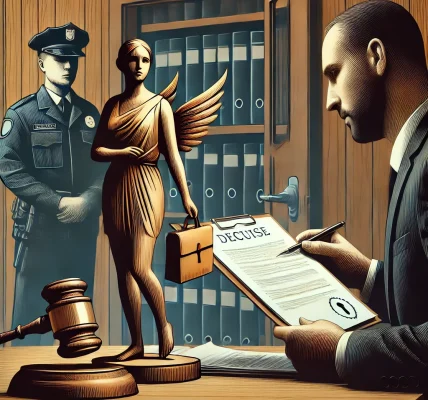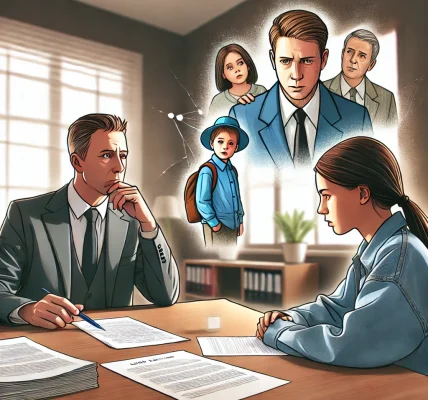Domestic violence is a serious issue that can have profound legal consequences, particularly in child custody cases. Courts prioritize the best interests of the child when making custody decisions, and any history of domestic violence can heavily influence the outcome. If you are involved in a child custody dispute where domestic violence is a concern, it is crucial to understand how the law works and what steps you can take to protect your rights and your child’s well-being.
1. The Role of Domestic Violence in Child Custody Cases
When determining child custody, family courts focus on ensuring that children are placed in a safe and nurturing environment. A history of domestic violence, whether against a spouse, partner, or child, is a key factor that judges consider. If one parent has been abusive, the court may restrict their custody rights or require supervised visitation to safeguard the child’s welfare.
2. Legal Standards for Child Custody and Domestic Violence
Most courts follow these legal principles when assessing the impact of domestic violence on child custody:
- Best Interests of the Child Standard – The court’s primary concern is the child’s safety, stability, and emotional well-being.
- Presumption Against Custody for Abusers – Many states have laws that create a legal presumption against granting custody to a parent with a history of domestic violence.
- Evidence of Abuse Matters – Courts rely on police reports, medical records, restraining orders, and witness testimony to evaluate allegations of domestic violence.
- Supervised Visitation or Limited Custody – If an abusive parent is granted visitation, it may be supervised by a third party to protect the child.
3. How Domestic Violence Is Proven in Custody Cases
To demonstrate that domestic violence has occurred, a parent may present:
- Court-issued protective or restraining orders
- Police reports detailing past incidents of abuse
- Medical records showing injuries related to abuse
- Witness testimonies from family, friends, or professionals
- Text messages, emails, or recordings as evidence of threats or abuse
Even if there has been no formal legal action against an abusive parent, a judge may still consider credible testimony and documented patterns of behavior when making custody decisions.
4. Impact of Domestic Violence on Custody Arrangements
Depending on the severity of domestic violence, courts may impose various custody restrictions, such as:
- Sole Custody to the Non-Abusive Parent – The court may award full custody to the non-abusive parent, denying legal and physical custody to the abusive parent.
- Supervised Visitation – If the abusive parent is granted visitation, they may be required to visit the child only in the presence of a court-appointed supervisor.
- Termination of Parental Rights – In extreme cases, the court may completely terminate the abusive parent’s rights if they pose a significant danger to the child.
- Anger Management or Counseling Requirements – The abusive parent may be required to complete a court-ordered rehabilitation program before being considered for any custody or visitation rights.
5. How a Parent Accused of Domestic Violence Can Defend Their Custody Rights
If you are accused of domestic violence and seeking custody of your child, you may need to:
- Provide evidence refuting false allegations (such as witness testimonies, security footage, or communications proving your innocence).
- Complete court-ordered programs, such as anger management or parenting classes, to show your commitment to change.
- Work with an experienced family law attorney to build a case that demonstrates your ability to provide a safe and stable environment for the child.
- Follow all court orders and show a willingness to cooperate with custody arrangements.
6. Steps to Take If You Are a Victim of Domestic Violence Seeking Custody
If you are a victim of domestic violence and concerned about your child’s safety, take the following steps:
- Obtain a Restraining Order – A protective order can legally prevent the abusive parent from contacting you and your child.
- Document All Instances of Abuse – Keep records of any incidents, including dates, descriptions, and any evidence such as photos or messages.
- Seek Legal Assistance – A family law attorney can help you file for custody and present a strong case in court.
- Consider Emergency Custody Orders – If the child is in immediate danger, the court may grant temporary emergency custody to remove them from harm’s way.
7. The Role of Child Protective Services (CPS) in Custody Cases Involving Domestic Violence
Child Protective Services (CPS) may become involved in custody cases if there is a concern for the child’s safety. CPS can:
- Investigate claims of child abuse or neglect.
- Recommend temporary or permanent removal of a child from an unsafe home.
- Provide reports to the court regarding the child’s well-being.
8. Mediation and Domestic Violence Cases: Are They an Option?
Mediation is often used to settle child custody disputes without court intervention. However, in cases involving domestic violence, mediation may not be appropriate. Many jurisdictions exempt victims of domestic abuse from mediation requirements, as it can put them at risk of coercion or intimidation by the abusive parent.
9. Conclusion: Protecting Children in Custody Decisions Involving Domestic Violence
Child custody decisions in cases involving domestic violence require careful legal consideration to ensure the child’s safety and well-being. If you are a parent facing a custody battle involving domestic violence, seeking legal counsel and documenting evidence of abuse is essential. The court’s priority is always the child’s best interests, and by understanding how domestic violence affects custody rulings, you can take the necessary steps to protect your child and secure a safe future for them.
If you need legal advice, consider consulting a family law attorney who specializes in domestic violence and custody cases to ensure the best possible outcome for you and your child.




